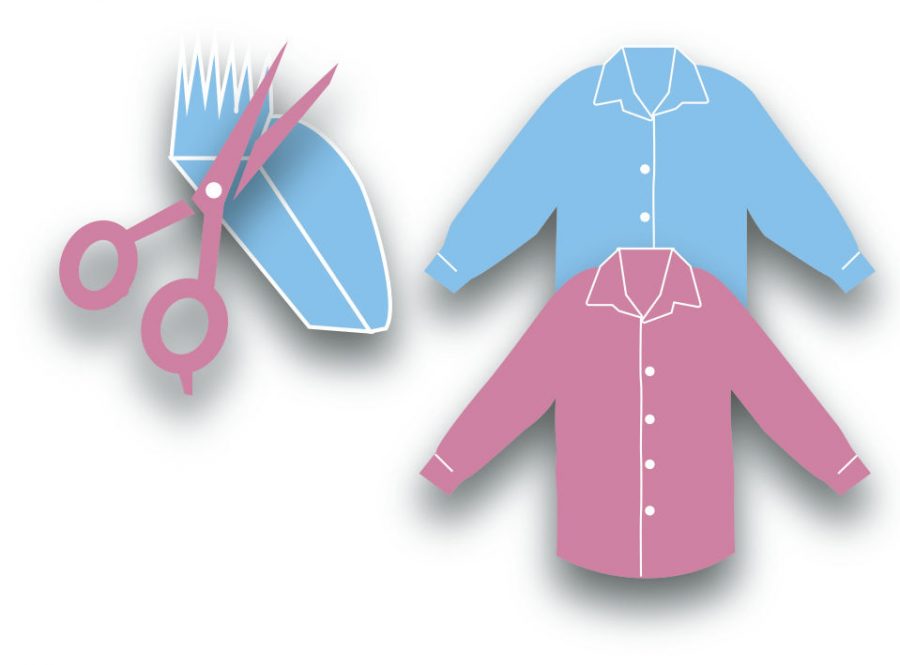Illinois women, senator challenging gender inequality norms
Illinois women, senator challenging gender inequality norms
February 20, 2017
Women paying more for the same goods and services than men solely because of gender is a form of discrimination, said State Sen. Melinda Bush, D-Grayslake.
Bush said she never questioned the validity of the practice until recently. But now that she has, she is trying to put an end to it.
“Women are making 70 cents on the dollar and African-Americans and Latinos are making substantially less than that,” Bush told The Chronicle. “We certainly shouldn’t be paying more for the services we are using.”
In a Feb. 8 press release, Bush announced she is expanding legislation, called Pink Inc., to reduce economic barriers for Illinois women. Bush said the bill will make it illegal in Illinois for hair salons, barber shops, dry cleaners and tailors with a unisex clientele, to charge women more than men for similar services.
“This is a fairness issue, and it is really just time that it is addressed,” she said.
Pink Inc. is an extension of previous legislation Bush sponsored to end the “pink tax” on feminine hygiene products—specifically tampons, sanitary napkins and menstrual cups—which went into effect in Illinois Jan. 1.
Bush is working with representatives from the American Civil Liberties Union of Illinois to establish the details of the bill.
Khadine Bennett, the ACLU’s Illinois director of Advocacy and Intergovernmental Affairs, said discrimination for public accommodations is already illegal under the Human Rights Act, but many customers do not know businesses are breaking the law. Women are often paying $2–$3 more than men at dry cleaning businesses for almost identical pieces of clothing, and more for the same short haircuts, Bennett added.
“[Pink Inc] will hopefully make stores and service providers think twice as to whether they really need to charge that extra amount, or are they just doing it because they have in the past,” she said.
According to Bennett, Pink Inc. would require businesses to post signs providing the prices of services, as well as a notice stating that discrimination based on gender is illegal under the Human Rights Act. The bill may also create a hotline for customers to report gender-based discrimination complaints to the Department of Human Rights, which would follow with repercussions for the accused business.
For businesses including salons that frequently provide extra services to women, Bennett said charging more for those services is legitimate.
Travis Smith, lead instructor at Sassoon Academy, a hair design school, said in the six years he has worked there, the salon’s standard has always been to charge men and women equally for haircuts.
He said the bill could potentially affect smaller businesses including those in his industry that still abide by stereotypical gender constructs when it comes to haircuts.
“Some say men’s hair take less time because they would typically do men’s hair shorter, but [today] that’s very wrong,” Smith said.
Bush said this bill will always face opponents but hopes to get a signature from the governor by the end of the year.
According to Jesse Hathaway—research fellow at the Heartland Institute Center on Taxes and the Economy—Bush’s proposed legislation should not be a top priority for state legislators.
“Instead of worrying about whether the local barber is charging the same amount as the local Great Clips, Sen. Bush needs to be focusing on what she can do as a lawmaker to help the state government reduce its spending, reduce its taxes and encourage businesses to relocate into Illinois,” Hathaway said.
While Hathaway said senators should focus on building an economy that brings people back to the state, Bush said she is putting Illinois women at the forefront of her priorities.
“Women are coming together and saying, ‘We want to be recognized, treated equally and fairly, and we are not going to take this anymore,’” Bush said.








